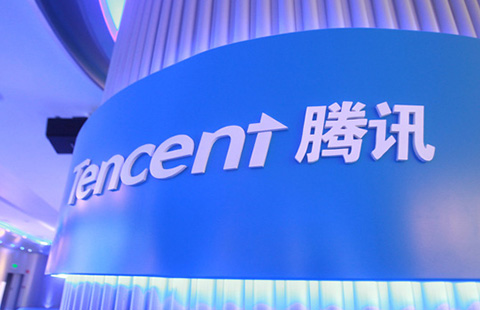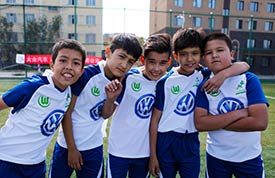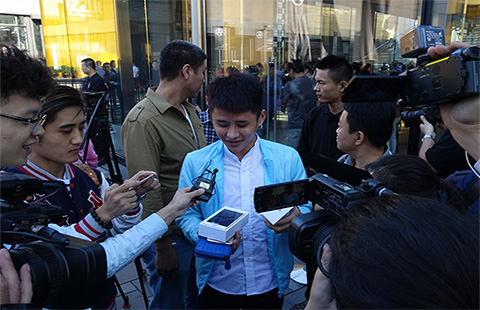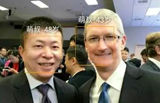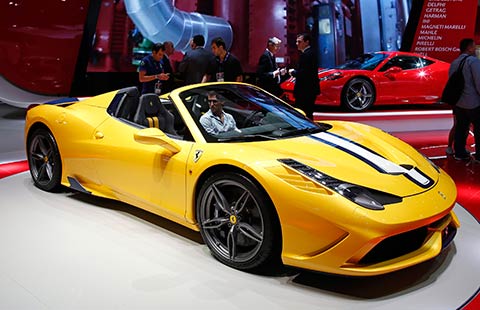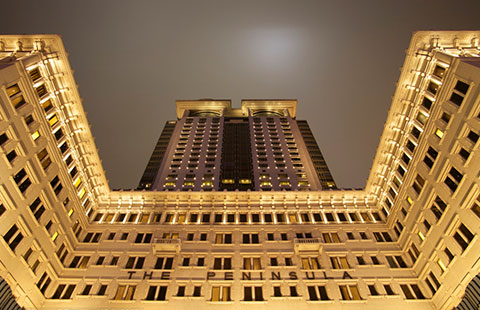Diaper brands jockey for China's booming market
By Dai Tian (chinadaily.com.cn) Updated: 2015-09-29 15:40
A Chinese mom shops for diapers while carrying her baby in a supermarket in Guangzhou, Guangdong province, Jan 23.[Photo/IC]
Thousands of diaper brands are jockeying for position in China's booming market as the relaxation of the one-child policy unleashes unprecedented growth potential.

Among the 1,200 brands available, about 200 are new and have entered the market since 2013 when the country loosened its family planning policy, allowing more couples to have a second child, according to Qinbei.com, an interactive platform for mom and baby products.
Diaper sales in China grew 16 percent last year from 25 billion yuan ($3.93 billion) to 29 billion yuan, with the top 10 brands soaking up 80 percent of the total, China Business News reported.
The country will see 200 foreign brands by 2017, as the market grows to 120 billion yuan, said the newspaper, citing an industry report.
Sales of Japan's Kao Group doubled year-on-year in 2013 and 2014, according to the newspaper, while sales of the brand's Chinese-manufactured diapers grew three times in 2014.
The growth coincided with expansionary moves as Kao Group launched a new factory in Hefei, Anhui province in January 2013. According to the paper, P&G and Kimberly-Clark also opened factories in Guangzhou and Nanjing respectively the same year.
Prices of imported diapers have been lowered after the Ministry of Finance announced a tariff reduction on diapers from 7.5 percent to 2 percent, from June 1.
Rise of higher-end segment
Parents born in the 1980s and 1990s have an increasing tendency to buy higher-priced diapers said the newspaper, adding that sales of higher-end products grew at 30 to 40 percent annually in the past years.
Market share for high-priced diapers in China has grown from less than 10 percent in 2010 to 15 percent in 2013, it said. Higher-end diapers under Unicharm, a leading Japanese brand, are 70 percent more expensive than its original products.
China's future market will provide greater growth potential in personal care, adult nursing and the pet care industries as well, Gonglin Jiguang, general manager of Unicharm, told the newspaper.
- Diaper brands jockey for China's booming market
- Made-in-China servers to dominate sensitive sectors
- China remains biggest trade partner of Vietnam in 9 months: statistics
- US market key for Chinese companies' globalization
- Yahoo to spin off Alibaba stake despite no US tax ruling
- Ambassador: Building on close ties
- Shanghai Zhenhua Heavy Industries adds to US expansion
- Interview: Next 5 years crucial for China, says Ernst & Young
